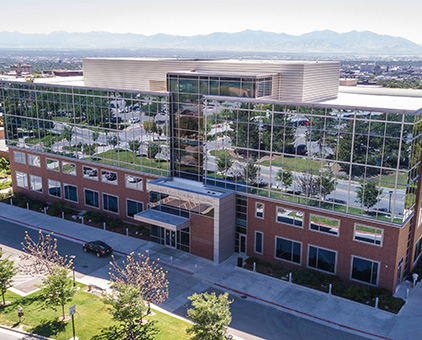Urban Ecology
20
Average
Class Size
Courses
Getting Started
Take the DF core courses:- CMP 2010: Design Ecologies
- DES 2630: Design Contexts
- ARCH 2630: DF Workshop
Making Progress
Complete first step courses in the major:- CMP 3270 - Visual & Oral Communication
- CMP 3270 - Visual & Oral Communication
- CMP 3200 - Ecology of Human Settlements
- CMP 3400 - Economy of Cities
- CMP 4260 - Land, Law, & Culture
- CMP 4450 - GIS for Urban Ecologists
- CMP 4010 & 4020 - Field Studies in Urban Ecology I & II
Finishing Up
Cap off your degree with:- CMP 4280 - Ecological Planning Workshop
- CMP 4954 -Internship in Urban Ecology
- CMP 4600 - The Just City
Community
Getting Started
- Join the DF-themed community at Sage Point
- Meet with a DF Peer Mentor
- Sign up for an outing with Campus Rec
Making Progress
- Join SCAPE or Point B
- Volunteer at one of the campus edible gardens
- Go on a Jane's Walk
- Join the Planning Department's social media feeds
- Volunteer for a CA+P of CMP Committee
- Buy some veggies at the U's farmers market
- Bike the Jordan River Trail
- Cheer for one of the Utes sports teams
Finishing Up
- Lead a Jane's Walk tour of your neighborhood
- Run for ASUU
- Go to a concert at Gardner Hall
Knowledge & Skills
Getting Started
- Meet with a CA+P Student Success Advisor
- Complete a personality profile
- Take DF-related Gen Ed courses
- Download and try out the Adobe Suite
Making Progress
- Attend a Green Bag Lecture at the Wallace Stegner Center
- Observe a city planning commission meeting
- Go to the Utah Bike Summit
- Go to a GCSC seminar
- Meet with a professor to talk about careers
- Check out the U's Capstone Program
Finishing Up
- Present a project at the Undergraduate Research Symposium
- Sign up to work on a GCSC research project
- Write an honors thesis
Transformation
Getting Started
- Conduct an informational interview with a professor
- Look into minors
- Take a music, art, or dance class
Making Progress
- Attend Plazafest
- Study another language
- Spend a semester at our campus in Songdo, South Korea
- Visit the Utah Museum of Fine Arts
- Become a Community Engaged Scholar
- Spend a semester in Volterra, Italy
Finishing Up
- Join a team in the Real Estate Challenge
- Finish an e-portfolio
- Take a yoga class
Impact
Getting Started
- Volunteer with the Bennion Center
- Mentor students from your old high school
- Develop an academic plan
Making Progress
- Apply for an internship through the Hinckley Institute
- Take a CEL course
- Propose a project to the U's SCIF sustainability program
- Go on an alternative fall/spring break
- Get involved with a neighborhood council
Finishing Up
- Become a DF Peer Mentor
- Volunteer with Red Butte Garden
- Go on a Career Trek trip
Careers
Getting Started
- Meet with a Career Services Coach
- Activate & customize your Handshake account
- Apply for a DF externship
- Go to a CA+P special lecture
Making Progress
- Go to the U's Annual Career Fair
- Meet with a Career Coach
- Create/update a LinkedIn profile
- Talk with employers at the CA+P Firm Fair
- Conduct an informational interview with a local professional
- Attend the state APA conference
Finishing Up
- Check out grad schools at the U's Grad School Fair
- Attend the National APA Conference
- Complete an internship with an organization or firm
Start Your Career Journey
Find support at the Career and Professional Development Center (CPDC)
About the Major
As a student of the Urban Ecology program, you will take classes in planning, field studies, economics, law, and social justice. Explore a variety of electives topics such as green infrastructure, sustainable development, community leadership, and cities in literature. In your senior year, you will take the Ecological Planning Workshop, which involves tackling real world problems through completing an internship. The undergraduate program in Urban Ecology will prepare you for a professional career in environmental and sustainability planning, public health, public policy, or community development and planning. U graduates have used analytical and technical skills to pursue work as Geographic Information Systems (GIS) analysts, planning consultants, conservationists, community organizers, environmental outreach, and project engineers. With further education, Urban Ecology graduates can pursue a career in architecture, law, real estate development, social work, urban design, and urban & regional planning.
Learning Outcomes
- Explore the relationships between social, environmental, and economic systems and grasp their role in shaping and managing human settlements.
- Analyze spacial, qualitative, and quantitative data to address real world problems.
- Gain competence in written, visual, and oral presentation skills.
- Examine the scientific basis of the environmental challenges and opportunities of human settlements in the 21st Century.
- Collaborate effectively across multiple planning, design, and scientific disciplines.
- Understand the history, form, and theory of human settlements.
Plan & Prepare
At the U, we plan for our students to have an exceptional Educational Experience identified by four broad categories we call the Learning Framework: Community, Knowledge & Skills, Transformation, and Impact. This major map will help you envision, explore, design, and plan your personalized Exceptional Education Experience with the Learning Framework at the core. In addition to assisting you in planning your coursework and navigating the requirements of your major, this map will help you incorporate other kinds of experiences to expand your knowledge, support your development, and prepare you for the future you want.


